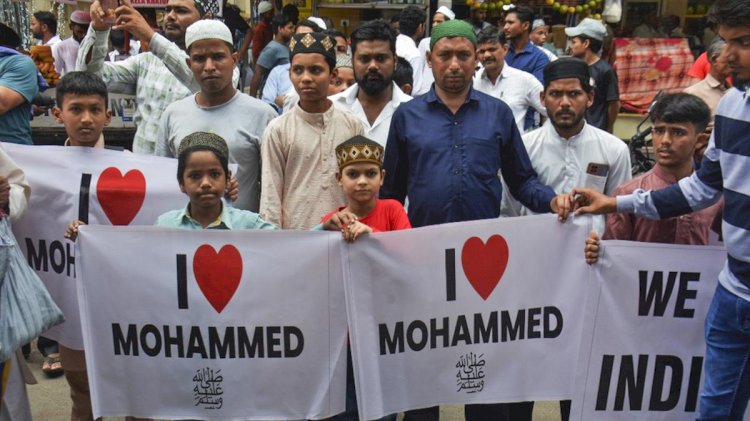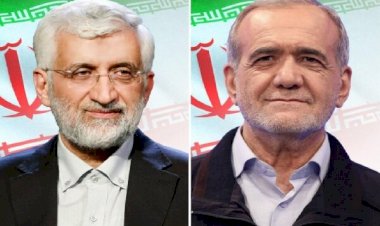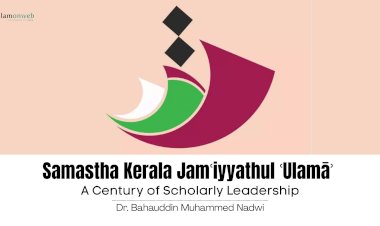“I Love Muhammad” Row: Another Flashpoint for Indian Muslims Under Right-Wing Rule
Kanpur / Bareilly / Ahilyanagar — September 2025
What began as a simple banner reading “I Love Muhammad” during Eid Milad-un-Nabi in Kanpur has turned into a nationwide flashpoint, once again placing India’s Muslim community under pressure in the backdrop of Hindu right-wing governments at the Centre and in northern states.
In Syed Nagar, Kanpur, local Muslims had decorated streets with lights and banners proclaiming their love for Prophet Muhammad ﷺ. What had long been a routine festive display was suddenly portrayed as a “new tradition” and treated as provocative. Under pressure from objections and political rhetoric, police removed banners and later began registering cases.
The controversy quickly spread beyond Kanpur. In Maharashtra’s Ahilyanagar, protests broke out after “I Love Muhammad” graffiti appeared on a road. Police responded with force, detaining at least 30 people. In Uttar Pradesh, where the BJP government under Yogi Adityanath has adopted a hard line, hundreds of Muslims have been booked, scores detained, and internet services cut in sensitive districts.
Bareilly witnessed some of the most serious clashes. Thousands gathered after Friday prayers, leading to confrontations with police in which over 20 officers were injured. The administration responded with mass arrests, including the detention of Maulana Tauqeer Raza Khan, a prominent cleric. Authorities have since sealed 38 Muslim-owned shops, most of them on waqf land, which locals call collective punishment. Families of detainees complain they have no information on the legal status or whereabouts of their relatives.
Chief Minister Yogi Adityanath has described the slogan campaign as a “planned conspiracy” and warned that “denting and painting must be done” to habitual offenders — words widely interpreted as an open threat to Muslim leaders. BJP leaders have amplified the narrative of provocation, while police in Kanpur arrested a former constable with links to the Samajwadi Party, portraying the entire episode as politically engineered.
Meanwhile, counter-campaigns have emerged: in Varanasi, banners reading “I Love Mahadev” were put up by Hindu groups in direct reaction, an act seen by critics as state-sanctioned provocation.
Civil society organisations, including Citizens for Fraternity, have written to the UP government alleging police excesses and calling the crackdown a violation of constitutional rights. Critics argue that the state is criminalising Muslim devotion while tacitly encouraging polarising counter-campaigns.
Prominent Muslim scholars, such as Maulana Khalid Rasheed, have urged restraint and called for the peaceful expression of faith. Yet, the prevailing perception among the community is that even a simple declaration of love for the Prophet ﷺ is being weaponised against them.
For many Muslims, the “I Love Muhammad” row fits into a larger pattern under the BJP-led central and state governments, where expressions of Muslim identity are increasingly policed, often leading to disproportionate punishments. From the bulldozing of homes to the sealing of shops, administrative action has repeatedly fallen on Muslim communities in the name of maintaining “law and order.”
With upcoming Hindu festivals and an already charged atmosphere, authorities fear more flare-ups. For India’s Muslims, however, the controversy has underscored a sobering reality: under the present political climate, even the most basic and peaceful expressions of faith can become grounds for surveillance, detention, and collective punishment.
Disclaimer
The views expressed in this article are the author’s own and do not necessarily mirror Islamonweb’s editorial stance.
























Leave A Comment